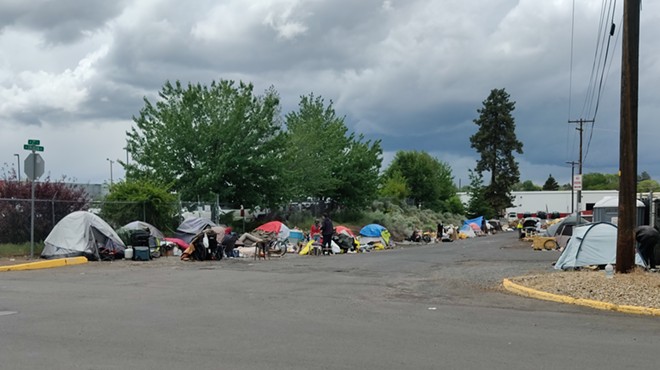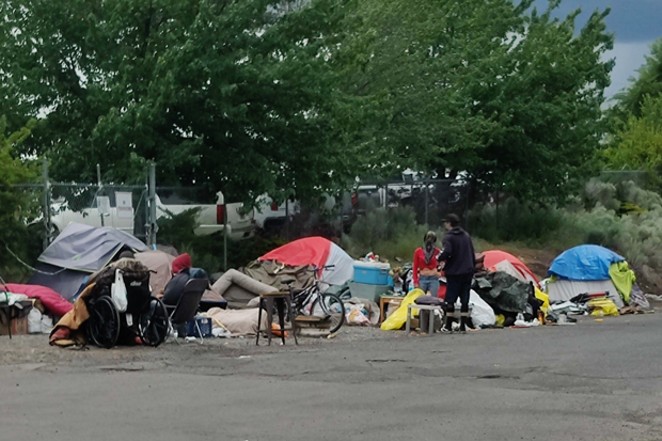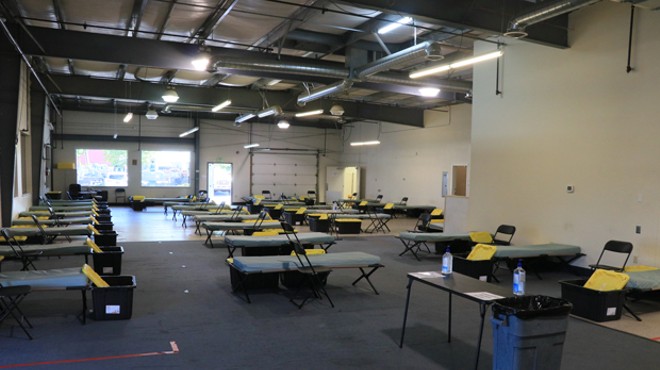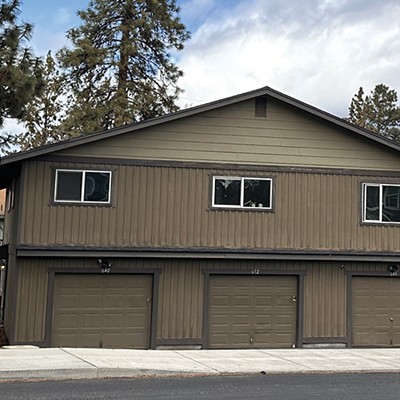By now, much has been said about the recent sweeps of camps occupied by those without homes in Bend. The advent of a new policy outlining how and when camps will be swept has been met with relief by some; with ire and protest by others. In a city that continues to outpace the growth of nearly any other city anywhere in the United States, the recent increase in houseless people visible on streets and other public areas is just a canary in the coal mine—a signal of the housing concerns that stretch across the spectrum.
And while protesting against new policies intended to promote health and safety is one tactic to push back against this difficult situation Bend finds itself in, protesting is only one of many actions all of us should be taking. So what can governments, service providers, employers, the general public and the houseless population actually do?
At the local-government level, the City of Bend is recognized as being among the most forward-thinking cities in the state in terms of tackling the housing crisis, having established an affordable housing manager position in 2006, before any other city in the state. And right now, while the wheels of bureaucracy grind slower than most would like, the City is at work on a plan to try to establish a managed camp—or several camps—for houseless people within the next 90 days, Bend City Manager Eric King told the Source Weekly. A City Council subcommittee tasked with developing a plan for using the City's portion of American Rescue Plan Act funds wants to use some of those funds on a managed camp. An emergency task force on homelessness is meeting later this month with officials from Deschutes County with the idea of teaming up to use portions of the two entities' ARPA funds for the camp. While many people tend to expect more from city governments than can actually be achieved, planning for camps and the like goes far beyond their primary concerns of managing our infrastructure and ensuring the sewer works when we flush the toilet.
Plans for a managed camp have been discussed now for several years—and it can certainly be frustrating to hear about plans and to continue to see no apparent progress. On the topic of the managed camp, however, you can thank the pandemic for seeing some progress now. Congress' allocation of funds to communities like ours means projects that were pipe dreams before can now, hopefully, move forward.
At the social services and nonprofit level, the entities currently working on addressing homelessness are already stretched thin. Shepherd's House has only this month taken on the responsibility of running a year-round low-barrier shelter at the site of this winter's warming shelter—an endeavor that no doubt is straining its resources. When and if a camp is established through funds funneled through city and county ARPA money, some service provider—either from the local area or elsewhere—will need to step up to run it, as that is beyond the scope of local governments. Which entity has the capacity to run a new camp? We'll see.
At the employer level, businesses can and should be ready to be flexible and accommodating to prospective employees whose housing situations are tenuous. By providing supports, such as signing bonuses or increases in pay or even housing for their employees, businesses can be part of the solution.
At the average-citizen level, more can be done besides showing up to protest or to shout down an elected official at a public meeting. Homeowners currently selling their homes can opt to only sell to locals who want to live in the area. They can opt to rent to long-term renters rather than to vacationers. They can open up their spare bedrooms to someone looking for housing. Those who have financial resources can donate to the social services agencies working to address housing issues. Those who have time can volunteer at the shelters already operating.
What average people shouldn't do, however, is assume that someone else will do the work. Neither should they simply write off the houseless population as a cadre of drug addicts or lazy people who don't want to work. The people in the local shelters and camps run the gamut of life experience, education and motivation, as we have seen with our very own eyes.
At the houseless-person level, it is unfair and unfeeling to simply say, "wait a little longer" for an appropriate level of support to come their way—but at the same time, it's true that more help is on the way.
A managed camp is the bare minimum we as Bendites can do to support the people on the lowest rung of a housing crisis that has hit epic proportions. But if you're not actively working to be part of the solution, you're part of the problem.
























